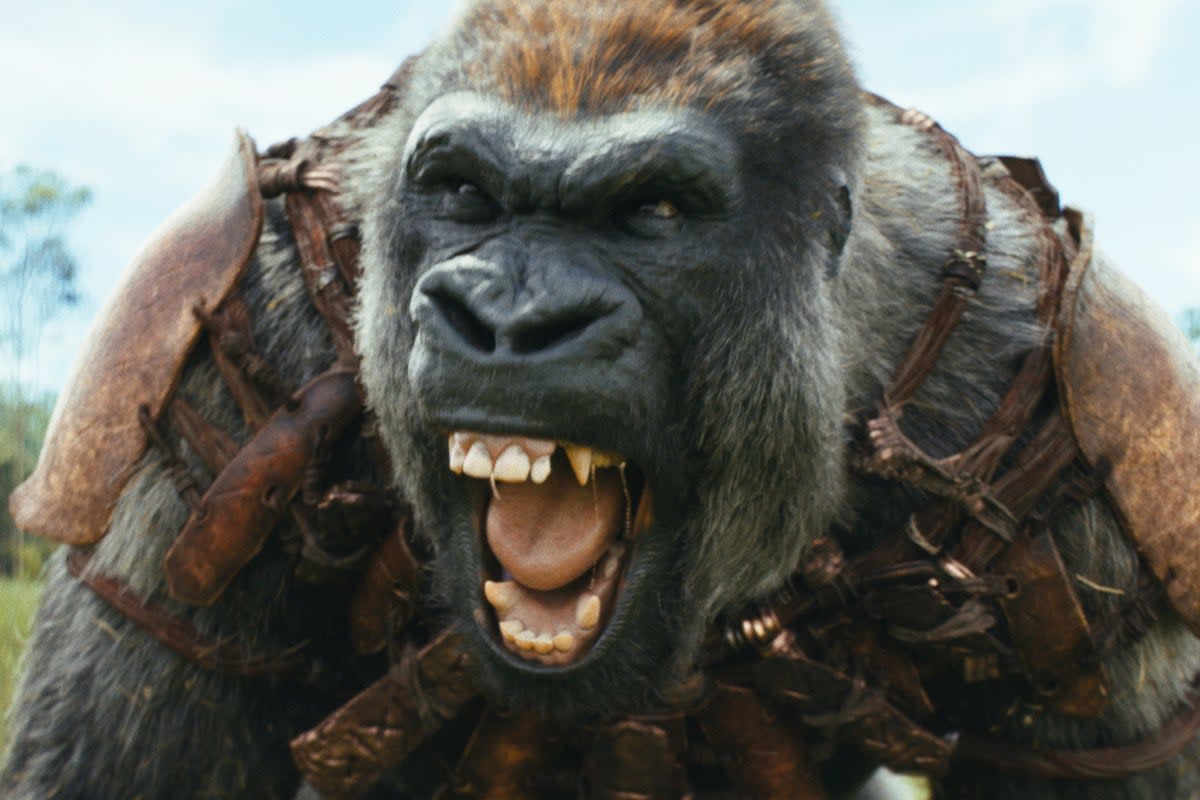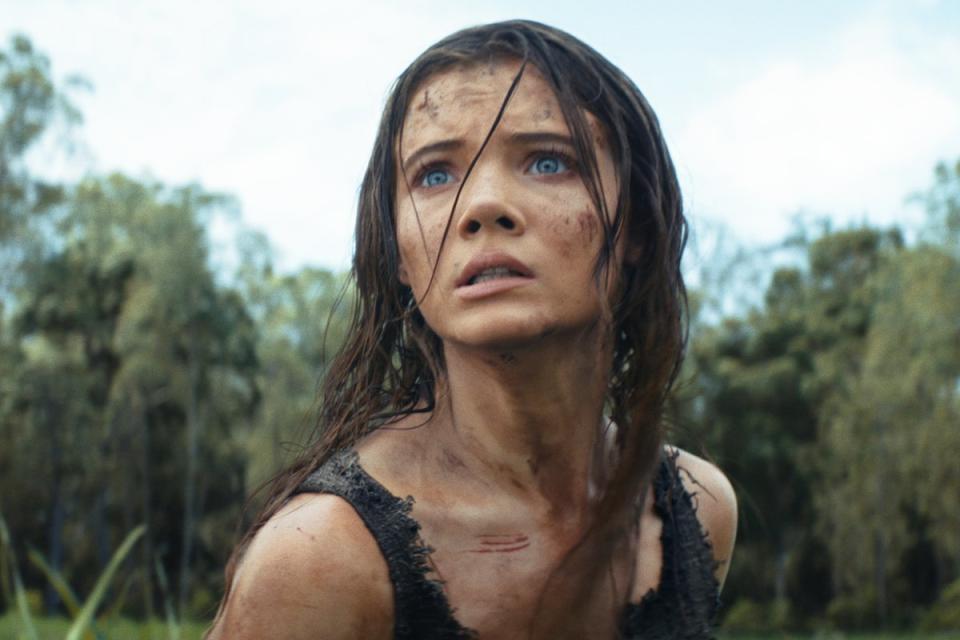Kingdom of the Planet of the Apes review: Great apes, but stale humans

It’s rare to meet a genuine, dyed-in-the-wool Planet of the Apes fan these days. And yet, the franchise has been ticking away solidly since its 2011 revival. The last three films opened to acclaim, if not feverish reverence, for their sombre, imposing human-ape battles and Andy Serkis’s game-changing motion capture work. The franchise continues now, a little more quietly but still impressively, with (deep breath) Kingdom of the Planet of the Apes. This film shifts the series’ timeline forward, and closer to the events of the original 1968 movie, and the luckless arrival of astronaut Charlton Heston.
Several generations have passed since the death of the original intelligent ape, Caesar (Serkis), who gained his evolutionary advantages from a manmade virus. Primate-kind has been hard at work on its own civilisation, now that humanity has been whittled down to what teen chimp Noa (Owen Teague) knows only as “echoes”, robbed of speech by the very same virus. But life is good – his clan have, like the Ewoks, built their own city of treehouses, and a society that centres around the ethical kidnapping of eagle eggs to raise as their own (it’s alright, they always leave one behind to continue the species).
Kingdom of the Planet of the Apes is a patchwork quilt of familiar notions: Noa is the timid failson of the clan’s chief, the master of birds (Neil Sandilands), who must buck up and brave the scary, abandoned rail tunnel that leads him into an unknown world. Only he can rescue his people, after their village is burned down and its populace kidnapped by a martial clan of primates, headed by bonobo Proximus Caesar (Kevin Durand, who plays him as operatic and egomaniacal like Mad Max’s Immortan Joe).
He’s guided by a wise, dry-humoured mentor, orangutan Raka (Peter Macon), a monk-like caretaker of Caesar’s pacifist teachings. And he’s singed by flames, nearly drowned by river rapids, and makes a perilous climb up a cliff face – it’s traditional and robustly crafted, in a way that’s deferential less to the trends of today than to some half-remembered dream of Hollywood’s classical epics. In fact, Proximus, fascinated with human history, presents himself as a hairy, sharp-toothed Roman emperor, having adopted “Caesar” as an honorary title in order to claim that all primates would be better off living under his thumb.
Josh Friedman’s script builds its own rich, knotty world of ape politics, which director Wes Ball then grounds in the rotted-out remains of human supremacy. It’s a handy way to remind us we aren’t so special – just the luck of evolutionary genetics, that any other creature could outpace us if given the chance. And Wētā FX’s digital work is truly impressive, elegantly translating the micro-expressions of its cast’s motion capture performances onto primate features (although this franchise’s repeated insistence on giving female chimps the whisper of a blunt-cut bob remains a silly, unnecessary gender marker).

Ironically, it’s the flesh-and-blood element of Kingdom of the Planet of the Apes that feels the most stale, as Noa ends up in an uneasy alliance with a human girl (The Witcher’s Freya Allan). He’s distrustful at first, but eventually sees her own ape-manity (as I believe the term would be in this universe). Allan, though, does little with her character’s stoicism, and it’s clear the filmmakers are holding back key details for a future sequel. Thankfully, it’s likely we’ll actually get a continuation – as this film reminds us, Planet of the Apes has become one of Hollywood’s most reliable franchises.
Dir: Wes Ball. Starring: Owen Teague, Freya Allan, Kevin Durand, Peter Macon, William H Macy. 12A, 145 mins
‘Kingdom of the Planet of the Apes’ is in cinemas


